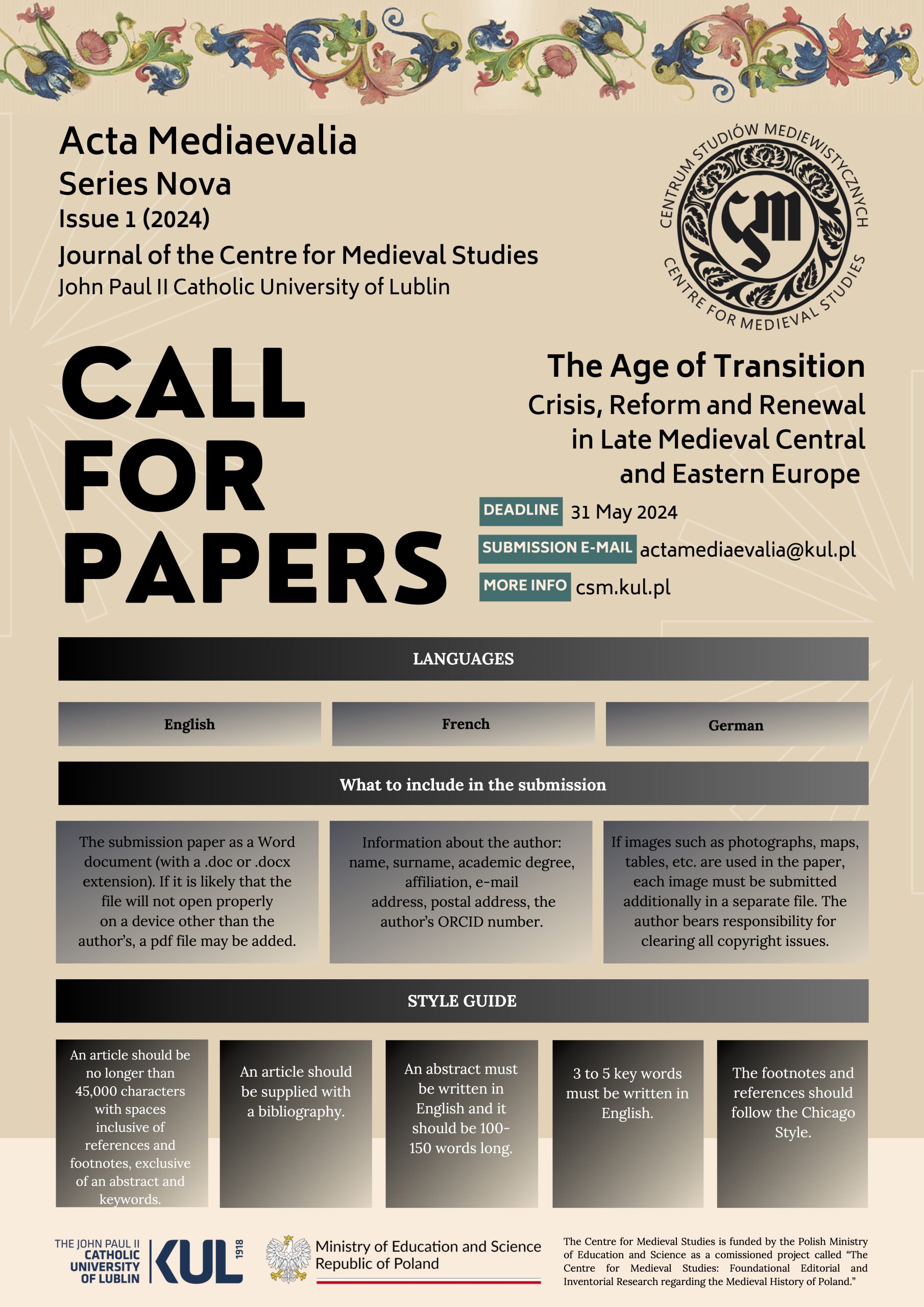Call for Papers: The Age of Transition. Crisis, Reform and Renewal in Late Medieval Central and Eastern Europe
Deadline: 31 May 2024
Submission e-Mail: actamediaevalia@kul.pl
John Paul II Catholic University of Lublin, Centre for Medieval Studies
In all spheres of human activity, from ideas and beliefs to social life, public institutions, communication and the economy, the long fifteenth century (ca 1375- ca 1525) was a period of profound change throughout Latin Christendom. It was also a period when Europe’s center of gravity and its many cultural energies moved decidedly east. Prague, Vienna and Krakow emerged as new centers of power, learning and art. Observant reformers, Hussite intellectuals and others agitated for reform and renewal across the region. Conciliar energies in Constance and Basel, and new parliamentary institutions in the Czech lands, Hungary and Poland, reflected a broad drive to wrestle control from the Church and from territorial monarchs. From above, so to speak, secular princes, landed nobility and city magistrates alike sought to appropriate and shape the life of the Church in their own interests. From below, or from without, the laity advocated for their place and their voice. Meanwhile, from within, the ranks of the clergy and especially the religious orders advocated for a reformed and renewed Church and society.
The result of these many cultural energies was a kaleidoscope of complexities that, although by no means new, were nevertheless distinct in their central European configurations, and above all richly documented. Their histories move across and often scramble our modern categories—religious and secular, lay and clerical, Latin and vernacular. And they worked in ways that were operating universally, regionally, and locally, up and down the social spectrum, and across the boundaries of institutions.
We invite papers that explore these many complexities in any combination, whether on particular manifestations of transitional character across the long fifteenth century, on the many responses those challenges engendered, or on the legacies of those responses. Suggested topics include:
- institutional and individual responses to the crisis of the Roman Church;
- the emergence and impact of conciliar theory;
- the workings and impact of preaching and pastoral care;
- dimensions of lay piety, including manifestations of heresy and dissent;
- the reform of religious life and religious orders.
We also invite contributions that will place events in the multifaceted intellectual and cultural context of the period, in ways that take into account a broader perspective covering various areas of intellectual culture. Our field of inquiry is open to the full spectrum of intellectual and spiritual, social and economic life, amid all of the transformations of the later Middle Ages.
We are interested in questions of culture and worldview both broadly understood, (e.g. in the fields of philosophy, theology, literature, language, art or science) and also questions specific to the long fifteenth century. Of particular interest are tensions between the “old” (or the “medieval”) and the “new” (or the “modern”), the emergence of new doctrines and paradigms of thinking, and new forms of their cultivation and dissemination.
For more information please see either the webpage of Centre for Medieval Studies at KUL or the Call For Papers as PDF.

